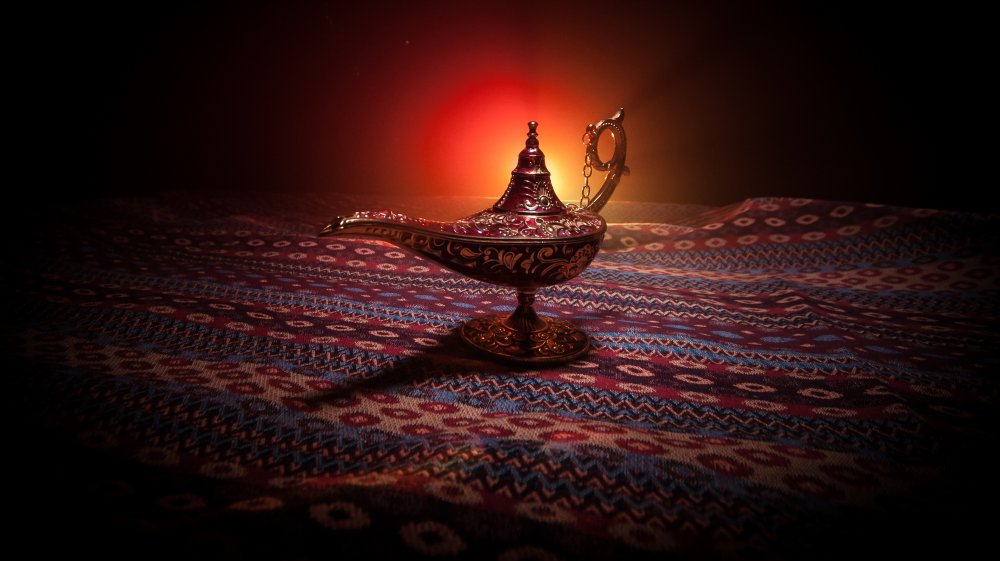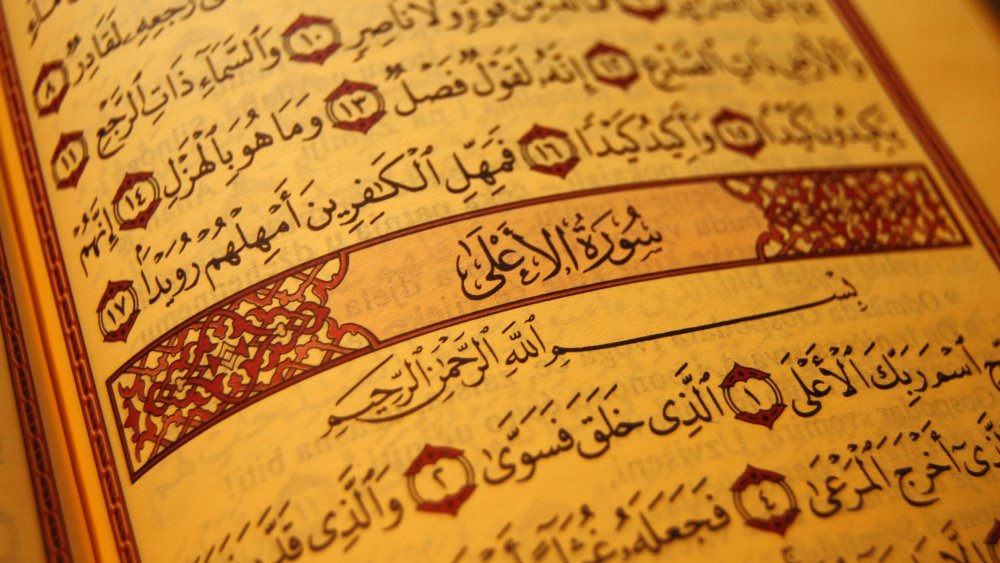Was Aladdin Actually Based On A Real Person?
Between the iconic (and problematic) 1992 Disney film, its many straight-to-home-video sequels, and the 2019 live action remake, most people under the age of 40 grew up with the story of Aladdin prominent in their cultural zeitgeist. Like much of Disney's output in the '80s and '90s, the tale of a pauper whose fortunes change thanks to a chance encounter with a genie in a lamp was appropriated from a much older fairytale. In Aladdin's case it's a story that researchers think may have a real historical figure at its heart.
Aladdin first appeared in an 18th century French translation of the ancient collection of folktales from the near and far east The Thousand and One Nights. Although the earliest fragments of the classic tome date back to the 9th century (and many of the stories themselves are likely much older), Aladdin has no antecedent before his appearance in the version by French scholar Antoine Galland, which was the first time the book was translated in a Europe.
Galland, who had pieced together his translation both from older Arabic versions of the text and stories he encountered on his travels around the Middle East, first heard the story of Aladdin from a Syrian textile merchant and storyteller named Hanna Diyab in 1709. Scholars haven't been able to trace where Diyab himself heard the story and have concluded that it's likely that not only did he make it up, but the fantastical tale of Aladdin may have been inspired by Diyab's own life.
The creation of a legend
Galland met Diyab in Paris at the apartment of a treasure hunter named Paul Lucas, who had met the young Syrian man in Aleppo. Lucas had conscripted Diyab to travel with him as an interpreter and cultural liaison. After a number of years in France, Diyab returned to Syria where he had quite a bit of success as a cloth merchant, and even wrote his own memoirs later in life.
Diyab's autobiography was only recently uncovered and studied, and when scholars read his own accounts of accompanying Lucas on a journey through France's high society — including a trip to Versailles where Diyab met King Louis XIV — they noticed more than a few similarities between his own life and the story of Aladdin that he had told Galland. The more fantastical elements were obviously a storytelling invention, but the heart of the tale, about a poor young man who yearns to move above his station, mirrors Diyab's own. Even some of Diyab's descriptions of visiting the great palaces of France read very similar to Aladdin's amazement at the access to upper society he is granted by the genie he conjures from his magic lamp.
There is still no concrete evidence to prove this theory, but considering scholars have yet to source a version of Aladdin's story older than the one Diyab told, it seems likely that it was the invention of a very clever storyteller drawing from his own lived experiences.

